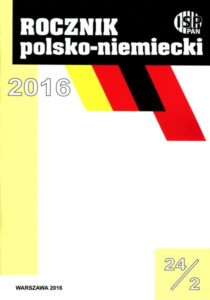Wobec II wojny światowej i Wojny Ojczyźnianej. Kwestia zbrodni masowych z lat 1941-1945 w polityce pamięci w Chorwacji od 1991 r.
World War II and the Croatian War of Independence. The Mass Crimes Committed in 1941–1945 in the Croatian Politics of Memory from 1991
Author(s): Tomasz StryjekSubject(s): Politics / Political Sciences, WW II and following years (1940 - 1949)
Published by: Instytut Studiów Politycznych PAN
Summary/Abstract: Croatia is the only modern country in Europe that gained independence (Independent State of Croatia, Nezavisna Država Hrvatska, NDH) during World War II thanks to the cooperation of the Axis. It is now struggling with the burden of responsibility for the mass crimes committed against Serbian, Jewish, Roma and Croatian political opponents on its own initiative rather than the Third Reich’s. On the other hand, the Croats were heavily repressed by the Yugoslav Army in 1945 (the remnants of the NDH forces were killed near Bleiburg during the so-called ‘way of the cross’). The Croats were also persecuted for their independence and cultural activities in the period between 1945 and 1991 (e.g. the Croatian Spring of 1971).Since 1991, the political scene of Croatia has been dominated by two parties: the right-wing Croatian Democratic Union (HDZ), which refers to the whole tradition of the independence movement with the exception of the Ustaše and NDH, and the left-wing League of Communists of Croatia (SKH), the successor of the Communist Party of Croatia. The parties fight for the memory of activities conducted by the anti-communists and communists between 1941 and 1991. They also fight to include ‘the patriotic war’ of 1991–1995 to their symbolism and win the favour of veterans.The article examines the politics of memory pursued by the Croatian authorities in relation to the events of 1941–1991 and the main participants in the political scene in the period between 1991 and 2016. It takes account of the arguments of historians and intellectuals associated with the left and right side of the political scene. It examines the impact of international circumstances, such as Croatia’s pursuit of membership of NATO and the EU, inducing the state’s authorities to prosecute and condemn the perpetrators of crimes committed on its citizens in the years 1941–1945 and those responsible for the ethnic cleansing of 1991–1995. The author also points to the impact of individual orientations in the politics of memory on the process of Croatia’s transformation from totalitarianism to democracy and the related modernization changes.
Journal: Rocznik Polsko-Niemiecki / Deutsch-Polnisches Jahrbuch
- Issue Year: 2/2016
- Issue No: 24
- Page Range: 161-213
- Page Count: 53
- Language: Polish

